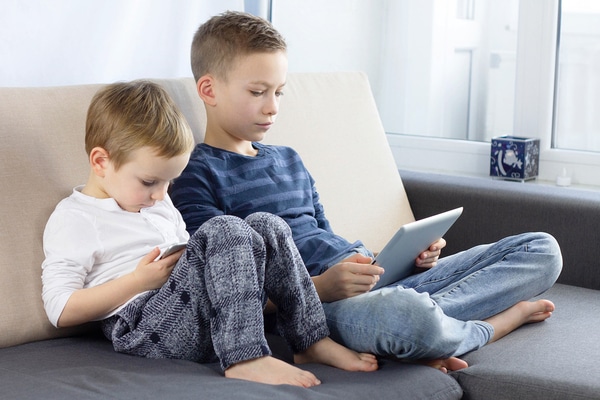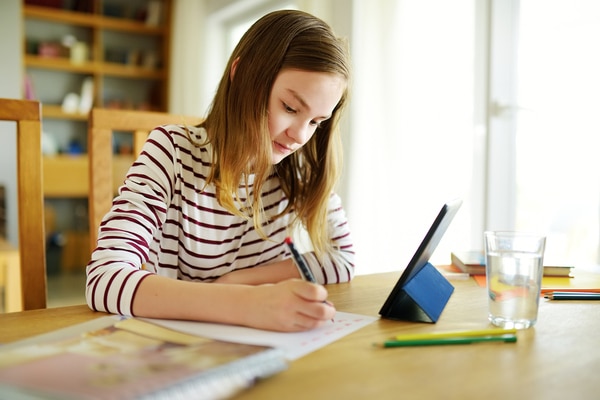Parents have a multitude of advice around what screens kids should have and when. Yet, tablets are particularly fraught. Since they connect to the internet and can be loaded with apps, there are both benefits and pitfalls parents can struggle with.
Here’s what parents should know about age-appropriate use, parental controls, and proper approaches for tablets.
Is A Tablet Even Necessary?
Tablets are usually a convenience for families, not a requirement. Many educational apps have multiple ways to access them via the internet, so sharing a family device like a laptop may be a better option depending on your concerns.
Ask yourself if a tablet makes sense for your budget and your family rules. If it’s expected for an educational program or other need, ask to sit down with the teacher or administrator and discuss your concerns.
Is There A “Right” Age?
How young is too young for a tablet? It’s a question that varies from family to family.
Many guidelines about screens concerning young children are not concerned with developmental impacts, but rather with kids spending too much time without getting up and moving. A better question may be “how active are my children, and what impact would giving them a tablet have on that?”
How Much Tablet Time Is Too Much?
This ties into the next concern: how much time should kids have on a tablet? Again, this will depend on the parents and their approach, and parents need to give themselves permission to occasionally allow a little tablet time if they need to focus on something else.
One important step, though, is to consider all the screens kids may be using. They should have to make decisions on what screens they can use, and family rules and parental controls should enforce those limits.

What Should Be Allowed?
Over time, children will need to develop skills to thrive as adults, and adults can help by easing them into certain rules. When considering what should be allowed and what should be gated off by parental controls on tablets, ask what you’re comfortable with, what you’re not, and why.
Don’t keep these concerns to yourself either. Articulating them will help kids understand why the rules are in place, making it more likely they’ll stick by them.
How Do I Balance School And Leisure?
An increasing challenge for parents is that many schools are beginning to expect kids to have tablets at home for homework and studying. Some schools have a “bring your own device” (BYD) policy, while others may send a tablet home to households with strict rules, or even parental controls already in place. Others may go the opposite direction entirely, banning tablets from their grounds and assigning homework that specifically demands kids not use technology to solve the problem.
Some parents will divide “work” screen time from “play” screen time and meter the two separately. Others will simply put it all into one bank. Regardless, you’ll have to adapt your family’s rules to outside changes and approaches.
Tablets will always present at least a few tough questions, especially as new apps with new questions appear. But you’re better off confronting them and rolling with the changes. That means using parental controls and apps to get ahead. Click here to learn more!


Join the conversation